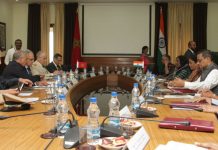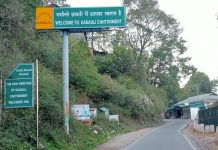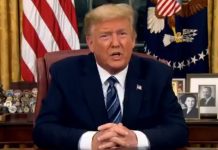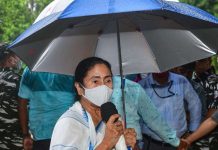There is a palpable desire for polls in the region. The entire political class barring the BJP wants the elections to be held in near future in the UT. Some feel the BJP may hold election after the 2024 general poll when it expects to return with a fresh mandate. A report by Riaz Wani
Even as the country braces for 2024 general elections, there are no signs that the Assembly elections will be held in Jammu and Kashmir. And with every passing month, the hope that the polls will be held in the union territory before the national elections is fading fast. This, despite the fact that the entire political class in the UT, except the BJP, want the elections to be held in the near future.
J&K has not had an elected government since June 2018 when Governor’s rule was imposed after the PDP-led coalition government lost its majority following the withdrawal of support by the BJP. Subsequently, on August 5, 2019, New Delhi abrogated Article 370 that granted J&K special status under India’s constitution, and downgraded the state into two union territories – J&K and Ladakh. Since then the Lieutenant Governor has taken over from the Governor. The last four years have witnessed a drastic political makeover of the state-turned-union territory, so much so that in many aspects, the current J&K bears little resemblance to what it was pre-August 2019.
The BJP is claiming to have ushered in the peace but has somehow shied away from holding polls. This has forced the opposition parties to close ranks and demand election.
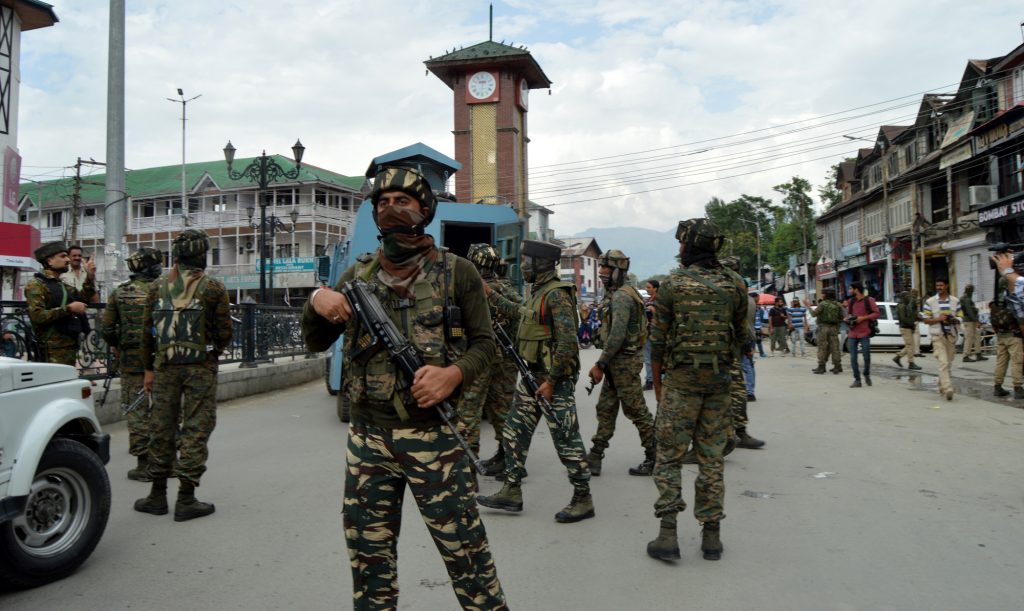
Earlier this month, a delegation of political leaders led by National Conference president Dr Farooq Abdullah met the Election Commission of India, seeking early elections in the Union Territory. The delegation requested the ECI to hold elections as soon as possible now that the delimitation process had been completed. The political leaders also submitted a memorandum to the ECI, in which they called for the restoration of the democratic process in the UT. The memorandum also mentioned that union home minister Amit Shah has stated many times that the government is ready to facilitate assembly elections, but the final call has to be taken by the Commission.
Significantly, the signatories of the memorandum included Abdullah, Congress national president Mallikarjun Kharge, CPI (M) general secretary Sitaram Yechury, NCP chief Sharad Pawar and other senior leaders of national political parties. Other signatories were DMK, TMC, CPIM, RJD, SP and AAP. They have also decided to visit Srinagar in May to assure people of their support. This is the first such attempt by leaders from Jammu and Kashmir to seek support from opposition parties from across the country for the restoration of statehood and democracy in the region. And this initiative followed immediately after Abdullah rallied opposition leaders from Jammu division where they decided to jointly approach the poll panel.
“In disregard of the letter and spirit of the Constitution, an unrepresentative and unaccountable bureaucracy is allowed to run the government to the discomfort and inconvenience of the general public,” the memorandum to the ECI read. “The Election Commission of India is under a constitutional obligation to hold assembly elections in Jammu and Kashmir and delay in and denial of assembly elections would amount to denial of fundamental and democratic rights of the people of Jammu and Kashmir and a breach of constitutional obligations.”
But the ECI gave no specific timeline to the delegation for the election, although it assured them of its seriousness to hold the exercise.
“The election commissioner of India didn’t give any specific dates about when the elections will be held,” the National Conference leader and parliament leader Hasnain Masoodi said. “But we are hopeful this meeting will bear fruit.”
Around ten Assembly elections are scheduled to be held before the general elections. But J&K is not one of them. Among them, the elections in Karnataka, Chhattisgarh, Madhya Pradesh, Rajasthan and Telangana will be very crucial. The BJP will hope to win all of them. But should the party suffer reverses in the majority of these states, this may not bode well for its 2024 chances. The elections in these five major states represent the last chance for the opposition, especially Congress, to hurtle back into the reckoning. This preoccupation with the national polls has made elections in J&K a secondary concern.
But not in J&K where people can be seen to be eagerly waiting for the elections, as the exercise is expected to lead to the restoration of statehood. No less than the union home minister has made it clear that the statehood of J&K would be restored only after elections are held and a representative government is formed. There have so far been no signs that the centre is reviewing its policy.
“It seems that the union government wants to first see how the future elected government would look and what its political and governance priorities would be, including its approach to the issue of the revocation of Article 370,” read an editorial in a local Kashmiri daily. “Also, it is as yet unclear if the centre would be inclined to restore complete statehood or a truncated one on the pattern of Delhi. All we can hope for now is that the elections are announced earlier than later, and September-October will be an ideal time for the exercise.”
But the centre has maintained a studied silence on the issue. The occasional utterance by a senior BJP leader has passed the buck on to the ECI. The ECI, in turn, has said that it will factor in “weather conditions and security situation” before taking a call on the elections.
“We are aware that once the process is complete, they (polls) must be held. And taking the weather, the security concerns and all other factors…other elections at that time…. (into consideration, we will take a decision),” the Chief Election Commissioner Rajiv Kumar said in January.
As for the weather and security, the concerns cited by the CEC as factors in holding polls in J&K, this is not an opinion shared by J&K political parties or for that matter, people in the region. It is springtime in Kashmir now and the weather is relatively warm. Second, as for security, Kashmir is now a considerably more peaceful place, a surprising turn of events which the government boasts as its singular achievement following the withdrawal of the region’s special status in August 2019. So, now is, in a sense, the ideal time for the Assembly polls.
This should normally pave the way for the polls, but this doesn’t seem to be the case. For some reason, the elections keep getting deferred. More so, at a time when there is a palpable desire for polls in the region. Some people are speculating that the BJP has shelved the plan for J&K Assembly elections and might want to postpone them until after the 2024 elections when it expects to return with a fresh mandate.
“Then the party may not hold elections for another five years,” said a Kashmiri politician not wanting to be named. “As of now, it is difficult to read the mind of the union government as far as Assembly polls in J&K.”








